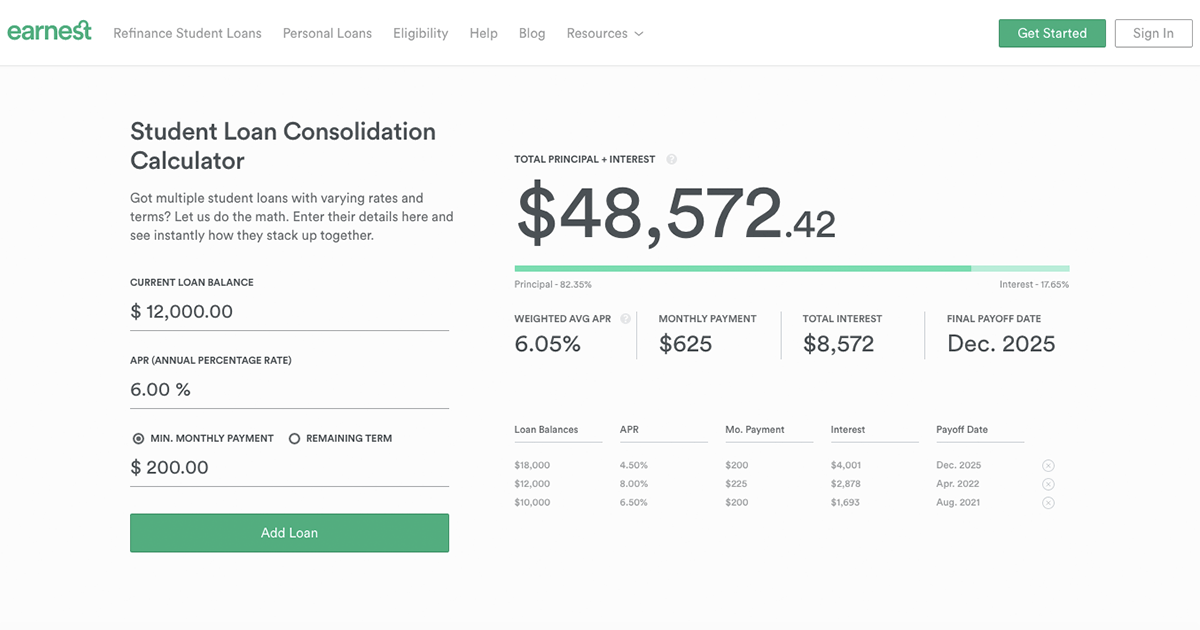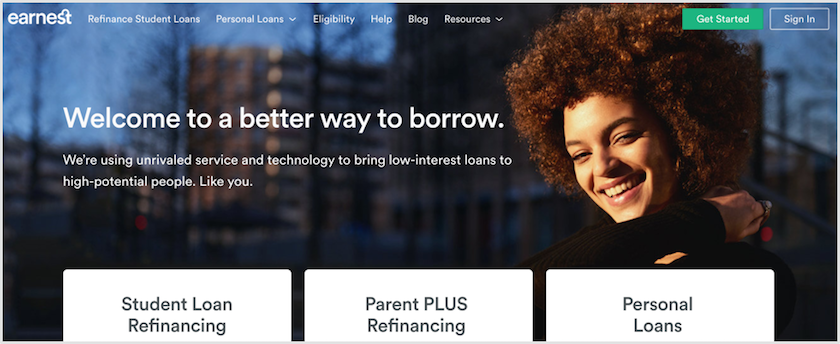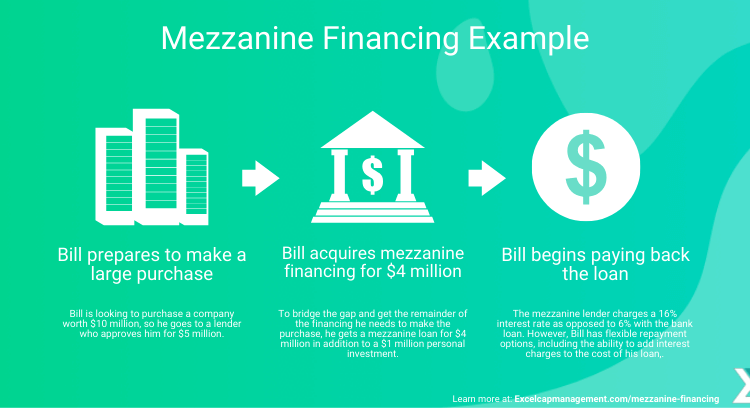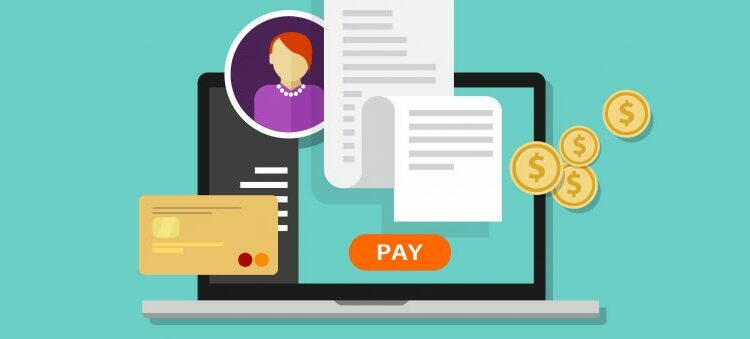If you’re considering refinancing your student loans, SoFi may be a lender worth exploring. This article offers a deep dive into SoFi student loan reviews, highlighting real user experiences while providing essential information on rates, eligibility, and the application process. By gathering insights from platforms like Reddit and Trustpilot, we aim to equip you with the knowledge needed to make an informed decision.
Toc
- 1. Understanding SoFi Student Loan Refinancing Rates and Terms
- 2. Related articles 01:
- 3. The SoFi Student Loan Application Process
- 4. Real User Experiences: SoFi Student Loan Reviews
- 5. Related articles 02:
- 6. Fees, Promotions, and Additional Services Offered by SoFi
- 7. Current Trends Affecting Student Loan Refinancing
- 8. Maximizing Your Success with SoFi Student Loan Refinancing
- 9. Conclusion
Understanding SoFi Student Loan Refinancing Rates and Terms

Current SoFi Student Loan Rates
SoFi provides competitive interest rates for student loan refinancing, but it’s essential to understand the specifics. Currently, fixed APRs range from 4.49% to 9.99%, while variable rates start at 5.99% and can go up to 9.99%. These rates can fluctuate based on factors such as your credit score and whether you enroll in autopay, which offers a 0.25% discount. For those refinancing Parent PLUS loans, the rates are similar, allowing for flexibility in consolidating debts.
|
Loan Type |
Fixed APR Range |
Variable APR Range |
|---|---|---|
|
Student Loans |
4.49% – 9.99% |
5.99% – 9.99% |
|
Parent PLUS Loans |
4.49% – 9.99% |
5.99% – 9.99% |
|
Medical Resident Loans |
6.14% – 10.09% |
6.14% – 10.09% |
In comparing SoFi’s rates to national averages for student loan refinancing, the current rates appear competitive. According to the Federal Reserve, the average interest rate for refinancing student loans is approximately 5.8% for fixed rates and 6.5% for variable rates. SoFi’s lower range suggests that borrowers with strong credit profiles may find better deals with SoFi than with many national lenders.
Repayment Terms and Options
SoFi offers a variety of repayment terms, including 5, 7, 10, 15, and 20 years. Choosing between fixed and variable rates is crucial; fixed rates provide stability, while variable rates may start lower but can increase over time. Borrowers should assess their financial situation and risk tolerance when making this decision.
Additionally, SoFi provides unique repayment options, such as deferment for those returning to graduate school or serving in the military, and forbearance for economic hardship or unemployment. These features can be advantageous for those who may face unexpected financial challenges during repayment.
SoFi Student Loan Requirements
Understanding the eligibility criteria for SoFi student loans is vital. Although there is no specified minimum credit score, applicants with scores below 700 may encounter challenges in qualifying. Applicants must also meet income requirements, demonstrating a steady source of income or the likelihood of obtaining one within 90 days. Furthermore, SoFi requires borrowers to hold a degree from an accredited institution, and U.S. citizenship or permanent residency is a must.
Factors Affecting SoFi Loan Approval
Several factors can influence your chances of loan approval with SoFi. These include your credit history, income stability, and debt-to-income ratio. Maintaining a low debt-to-income ratio and having a creditworthy co-signer can enhance your chances, especially if your credit score is on the lower end of the spectrum.
One frequently asked question is, “Does SoFi refinance international student loans?” Unfortunately, SoFi does not currently offer refinancing options for international student loans, which is a crucial consideration for those looking to consolidate debts incurred while studying abroad.
Comparing SoFi with Nelnet and Other Lenders
When evaluating SoFi, it’s beneficial to compare its offerings with other lenders, such as Nelnet. Below is a comparative overview of the two lenders:
1. https://pccchanoi.com/mmo-2
2. https://pccchanoi.com/mmo-6
3. https://pccchanoi.com/mmo-5
|
Feature |
SoFi |
Nelnet |
|---|---|---|
|
Minimum Loan Amount |
$5,000 |
$1,000 |
|
Fixed APR Range |
4.49% – 9.99% |
4.50% – 9.75% |
|
Variable APR Range |
5.99% – 9.99% |
5.25% – 9.50% |
|
Repayment Terms |
5, 7, 10, 15, 20 years |
5, 10, 15 years |
SoFi stands out for its career services and networking opportunities, which may appeal to borrowers looking to enhance their professional prospects while managing their debt. However, Nelnet offers longer repayment terms and specific programs catering to particular borrower types, which could be advantageous for some.
The SoFi Student Loan Application Process

Step-by-Step Application Guide
The application process for SoFi student loan refinancing is straightforward. It begins with a prequalification process that involves a soft credit check, allowing you to gauge potential rates without impacting your credit score. This step is crucial for assessing your options.
Once prequalified, you can move to the full application, requiring a hard credit check. Be prepared to provide documentation such as proof of income, loan details, and identification. The approval timeline can vary, but many borrowers report receiving decisions within a few days.
Managing Your SoFi Student Loan Account
After securing your loan, managing it through the SoFi online portal is essential. The platform is user-friendly, allowing you to easily access your account, view statements, make payments, and communicate with customer service. This ease of management ensures that handling your student loan is a hassle-free experience.
Common Application Issues and Solutions
While many borrowers report a smooth application process, some common issues arise. Delays in processing documents can occur, especially if additional information is required. If you encounter issues, reaching out to SoFi’s customer service can provide clarity and expedite the resolution process.
Real User Experiences: SoFi Student Loan Reviews
To gain a better understanding of SoFi student loan refinancing, let’s look at some real user experiences and reviews.
“I was able to lower my monthly payments with SoFi’s variable interest rates, and the online platform makes managing my loan simple.” – Jenna F.
“Although I had issues with document processing delays, reaching out to customer service helped resolve the issue quickly. Overall, I am satisfied with SoFi’s services.” – Michael P.
“My credit score was on the lower end, but having a co-signer with good credit helped me secure a competitive rate with SoFi. I am happy with my decision to refinance with them.” – Sarah R.
Insights from Reddit and Other Platforms
User reviews on platforms like Reddit reveal a spectrum of experiences, ranging from positive feedback on competitive rates and streamlined application procedures to negative experiences with customer service. Some users commend SoFi for its user-friendly platform and effective communication, while others express frustration over customer service responsiveness and unfulfilled bonus offers.
For instance, one user shared how they successfully refinanced with a significantly lower rate and received a bonus for signing up. In contrast, another individual mentioned issues receiving promised bonuses, emphasizing the importance of thoroughly understanding the terms and conditions before applying.
Analyzing CFPB Complaints and Lawsuits
Examining consumer complaints filed with the Consumer Financial Protection Bureau (CFPB) reveals a mix of experiences. A notable percentage of complaints involve misunderstandings related to bonuses and customer service responsiveness. Complaints have also been lodged concerning unfair billing practices and failures to honor advertised terms, which raises transparency concerns for potential borrowers.
Furthermore, SoFi has faced lawsuits related to its lending practices, which adds to the apprehension among potential clients. Understanding these issues is essential for borrowers considering SoFi as their lender.
Addressing Misleading Advertising Claims
Several users have raised concerns about misleading advertisements from SoFi, particularly regarding inflated savings claims. While many borrowers have achieved significant savings through refinancing, it’s crucial to approach advertised figures with caution and to perform your calculations based on your financial situation. Doing so helps set realistic expectations and avoid disappointment or misunderstandings.
Fees, Promotions, and Additional Services Offered by SoFi

Fees Associated with SoFi Student Loans
SoFi stands out by not charging origination or application fees for its student loans, which can save borrowers hundreds of dollars compared to other lenders who often include such fees. This fee-free structure allows borrowers to focus on repaying their loans without worrying about upfront costs. However, while SoFi itself does not impose additional charges, there may be third-party fees involved in the refinancing process. These could include costs such as document processing, title search fees, or other administrative expenses that are standard in financial transactions. It’s important for borrowers to research and understand these potential costs before proceeding.
Promotions and Bonuses for SoFi Student Loan Borrowers
SoFi frequently offers various promotions and bonuses to attract borrowers and reward members. These include cashback bonuses for refinancing loans through their platform, referral bonuses for introducing friends to SoFi services, and occasional rate discounts or incentives during specific promotional periods. For example, borrowers may receive a one-time cashback bonus after completing the refinancing process. These offers can provide meaningful savings for borrowers but may come with specific eligibility requirements or terms. It’s essential to thoroughly read and understand the terms and conditions of these promotions to ensure you meet the criteria and maximize the benefits offered.
Additional Services Offered by SoFi
In addition to student loan refinancing, SoFi provides a wide array of financial products and services designed to help members achieve broader financial goals. These services include personal loans for expenses like home improvements or debt consolidation, mortgage refinancing options for homeowners, and investment services tailored to individual needs. As a SoFi member, you gain access to exclusive benefits that go beyond financial products. These include career counseling to assist with professional growth, financial planning tools to help manage your budget and investments, and invitations to networking events aimed at connecting members with like-minded individuals. SoFi’s holistic approach to financial wellness adds significant value to its offerings, aligning with its mission to empower members to achieve financial independence and live healthier, more secure lives.
Current Trends Affecting Student Loan Refinancing
As the economy and job market continue to fluctuate, several trends are worth considering for individuals with student loans. These include interest rates, the increasing number of borrowers opting for refinancing, and the ongoing effects of COVID-19.
Interest Rates
Interest rates play a significant role in determining whether refinancing is a viable option for borrowers. When interest rates are low, refinancing can help borrowers secure lower monthly payments or pay off their loans faster by reducing the total interest owed over time. Currently, interest rates remain historically low, making it an excellent time to refinance for those looking to save money or gain financial flexibility. However, it’s essential to consider factors such as loan terms, potential fees, and overall savings before making a decision. Additionally, keeping an eye on market trends is important, as interest rates could fluctuate in the future. Borrowers should weigh these factors against their long-term financial goals when deciding whether to refinance now or wait for potentially better rates.
Increasing Prevalence of Refinancing
The past decade has seen a steady rise in student loan debt, which has reached record levels in the U.S. This increase has driven more individuals to explore refinancing options as a way to manage their financial burdens. Refinancing offers benefits like lower interest rates, simplified repayment plans, and the ability to consolidate multiple loans into one. Private lenders, such as SoFi, have made refinancing more accessible by offering tailored solutions, competitive rates, and user-friendly platforms. As awareness of these benefits continues to grow, the trend of refinancing is likely to accelerate, particularly among millennials and Gen Z borrowers who are navigating significant student loan debt early in their careers. For many, refinancing is becoming a strategic tool to achieve greater financial stability and freedom.
Impact of COVID-19
The COVID-19 pandemic has had a profound impact on borrowers’ financial situations, dramatically altering the economic landscape. Many individuals have faced job loss, reduced income, or financial uncertainty, making it harder to keep up with loan payments. In response, various relief programs have been introduced, including federal payment pauses, interest waivers, and other support measures for federal student loan borrowers. While these programs have provided temporary relief, borrowers with private student loans often lack access to these benefits, leaving them searching for alternative solutions. Refinancing has become an appealing option for managing private loan debt during this challenging time. By refinancing, borrowers can secure lower interest rates or adjust loan terms to make payments more manageable. As the long-term economic effects of the pandemic unfold, refinancing is likely to remain a critical strategy for borrowers striving to regain control of their financial health.
Maximizing Your Success with SoFi Student Loan Refinancing

Improving Your Chances of Approval
To enhance your likelihood of securing favorable terms with SoFi, focus on improving your credit score by paying bills on time, reducing outstanding debt, and addressing any errors on your credit report. A stable income demonstrates financial reliability, so maintaining consistent employment or demonstrating steady revenue as a self-employed individual is key. Keeping your debt-to-income ratio low will also work in your favor, as lenders view this as a sign of financial health. Additionally, consider having a creditworthy co-signer if your credit score is on the lower end of the spectrum. A co-signer with strong credit can significantly boost your application, increasing your chances of getting approved with better rates and terms.
Negotiating Better Terms
While SoFi is known for offering competitive rates and terms, there’s often room for negotiation. If you’ve received offers from other lenders, bring them up during discussions with SoFi—many lenders are willing to match or even beat competitive offers to secure your business. Be prepared with documentation, such as pre-approval letters or rate quotes, to strengthen your case. It’s also worth asking about any potential discounts, such as autopay rate reductions or loyalty benefits, which can lower your overall costs and make your repayments more manageable.
Choosing Between Fixed and Variable Rates
The choice between fixed and variable rates depends on your financial goals and risk tolerance. Fixed rates provide predictability, ensuring that your monthly payments remain consistent throughout the loan term, making them ideal for those who prefer stability and long-term planning. On the other hand, variable rates often start lower than fixed rates and can offer significant savings if interest rates decline during the repayment period. However, they come with the risk of rising payments if rates increase. Carefully analyze your financial situation, including your budget, future income prospects, and your ability to handle potential rate fluctuations, before making a decision. Consulting a financial advisor can also help you determine which option aligns best with your goals.
Understanding the Risks of Refinancing Federal Loans
Refinancing federal loans with SoFi can lead to lower interest rates or more favorable repayment terms, but it’s crucial to understand the potential risks involved. By refinancing, you relinquish certain federal benefits, such as income-driven repayment plans, deferment and forbearance options, and access to federal forgiveness programs like Public Service Loan Forgiveness (PSLF). These protections can be valuable during periods of financial instability or when working toward qualifying forgiveness. Before refinancing, consider your long-term financial strategy and whether the benefits of federal loan protections outweigh the potential savings from a private loan. If you anticipate needing flexible repayment options or plan to pursue federal forgiveness, refinancing may not be the best choice for your situation. Always weigh the pros and cons carefully and explore all available options before making a final decision.
Conclusion
Refinancing your student loans is a powerful tool, but it’s essential to approach the process with a clear understanding of your goals and options. By leveraging the resources and guidance available through a trusted lender like SoFi, you can make informed decisions that align with your broader financial strategy. Whether your priority is reducing monthly payments, paying off loans faster, or simplifying your obligations, SoFi offers tailored solutions designed to support your success.
Remember, refinancing is not a one-size-fits-all solution, and what works best for one individual may not suit another. Taking the time to evaluate the pros and cons, assess your financial health, and seek advice if needed will position you for the best outcomes. With dedication and the right support, you can take a significant step toward achieving financial independence and focusing on what matters most in your life.










